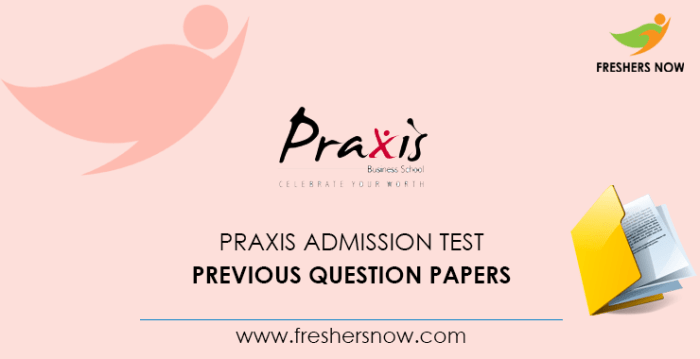Embark on an enlightening journey into the realm of praxis question of the day slp, where we delve into its definition, purpose, and multifaceted applications in speech-language pathology. This concept, deeply rooted in the field of SLP, holds immense potential for enhancing clinical practice and empowering professionals to provide exceptional care.
Praxis questions serve as valuable tools for assessing and evaluating speech-language skills, guiding treatment plans, and fostering progress tracking. By incorporating these questions into their practice, SLPs can gain deeper insights into their clients’ strengths and weaknesses, tailor interventions accordingly, and monitor outcomes effectively.
Praxis Question of the Day
A praxis question of the day in speech-language pathology (SLP) refers to a daily practice exercise that presents a specific question or task related to the field.
Incorporating such questions into SLP practice serves multiple purposes, including:
Benefits
- Enhancing clinical reasoning and problem-solving skills.
- Reinforcing knowledge and promoting continuous learning.
- Providing opportunities for self-assessment and identifying areas for improvement.
li>Encouraging collaboration and knowledge-sharing among SLPs.
Types and Categories of Praxis Questions

Praxis questions used in SLP vary widely, covering different aspects of speech and language skills. These questions can be categorized based on specific criteria, providing a structured approach to assessment and intervention.
Articulatory-Oromotor Movements
- Sequential Movements:Questions that assess the ability to produce a series of articulatory or oromotor movements in a specific order.
- Complex Movements:Questions that require the coordination of multiple articulators or oromotor structures, often involving specific tongue, lip, or jaw movements.
- Graded Movements:Questions that assess the ability to produce articulatory or oromotor movements with varying degrees of force, speed, or range of motion.
Linguistic Complexity
- Single-Word Production:Questions that assess the ability to produce isolated words with correct articulation and prosody.
- Phrases and Sentences:Questions that assess the ability to produce connected speech, including phrases and sentences with varying levels of linguistic complexity.
li> Discourse:Questions that assess the ability to produce longer stretches of speech, such as narratives or conversations, with appropriate language structure and content.
Cognitive Demands
- Memory:Questions that assess the ability to remember and recall sequences of movements or words.
- Attention:Questions that assess the ability to focus and sustain attention during the production of speech or language tasks.
- Problem-Solving:Questions that require the use of cognitive strategies to solve problems related to speech or language production.
Assessment and Evaluation: Praxis Question Of The Day Slp

Praxis questions play a pivotal role in evaluating speech-language skills, providing insights into a client’s abilities and areas for improvement.
The praxis question of the day for SLPs can be a great way to stay sharp and prepare for the exam. For those looking for additional practice, wordly wise book 6 lesson 12 offers a comprehensive review of essential vocabulary and language concepts.
By incorporating this resource into your study routine, you can further enhance your preparation and increase your chances of success on the praxis question of the day slp.
These questions assess a client’s ability to plan and execute motor sequences involved in speech production. By observing a client’s performance on praxis tasks, clinicians can identify deficits in motor planning, sequencing, and coordination.
Deficits, Progress, and Decisions
Praxis questions can aid in identifying specific deficits in speech-language skills. For example, difficulties with sequential movements may indicate a problem with motor planning, while errors in coordinating movements may suggest a coordination deficit.
Additionally, praxis questions can be used to track a client’s progress over time. By comparing performance on repeated praxis tasks, clinicians can monitor the effectiveness of intervention and make necessary adjustments.
The information gathered from praxis questions also informs clinical decisions. For instance, clients with severe praxis deficits may require more intensive intervention focused on motor planning and sequencing.
Administration and Interpretation
Effective administration of praxis questions involves clear instructions, standardized procedures, and careful observation of the client’s performance.
Interpretation of praxis questions requires an understanding of normal developmental milestones and the impact of various factors, such as age, neurological conditions, and cultural background.
Treatment and Intervention

Praxis questions are a valuable tool for SLPs in both assessment and intervention. They can be used to identify and target specific areas of difficulty in speech and language production, and to track progress over time. In addition, praxis questions can be used to facilitate motor planning, sequencing, and coordination, which are essential skills for speech and language production.
Strategies and Techniques
There are a variety of strategies and techniques that SLPs can use to incorporate praxis questions into treatment plans. One common approach is to use a hierarchical approach, starting with simple tasks and gradually increasing the complexity as the client progresses.
Another approach is to use a variety of modalities, such as visual, auditory, and tactile cues, to help the client learn the desired skills.
Some specific strategies and techniques that SLPs can use include:
- Verbal instructions:Giving the client clear and concise verbal instructions on how to perform the task.
- Visual cues:Using pictures, diagrams, or other visual aids to help the client understand the task.
- Auditory cues:Using sound effects, music, or other auditory cues to help the client sequence the task.
- Tactile cues:Using physical prompts, such as hand-over-hand assistance, to help the client perform the task.
- Feedback:Providing the client with feedback on their performance, both positive and negative.
Resources and Tools

Speech-language pathologists (SLPs) have access to various resources and tools that can support them in developing and utilizing praxis questions. These resources can provide valuable information and guidance, enhancing the effectiveness of clinical practice.
Online databases, textbooks, and assessment materials are among the most commonly used resources for SLPs. Each type of resource offers unique advantages and may be more suitable for specific purposes or contexts.
Online Databases, Praxis question of the day slp
- Advantages:Extensive information, up-to-date content, accessible from any location with internet connection.
- Limitations:May require subscription fees, potential for inaccurate or biased information.
Textbooks
- Advantages:Comprehensive coverage of topics, in-depth explanations, reputable sources.
- Limitations:May not be as up-to-date as online resources, can be expensive.
Assessment Materials
- Advantages:Specifically designed for assessing praxis skills, standardized norms, reliable and valid.
- Limitations:Can be time-consuming to administer and score, may not be appropriate for all clients.
Ethical Considerations

Using praxis questions in SLP requires careful consideration of ethical principles to ensure the well-being and rights of clients.
Obtaining informed consent is paramount, ensuring clients fully understand the purpose and potential outcomes of the assessment. Respecting client autonomy means valuing their choices and preferences, allowing them to participate actively in the decision-making process.
Confidentiality
- Maintaining confidentiality is essential, safeguarding clients’ privacy and trust. All information gathered during the assessment should be kept confidential, only shared with authorized individuals as necessary for the client’s care.
Fair and Equitable Use
- Praxis questions should be used fairly and equitably, avoiding bias or discrimination. Cultural, linguistic, and socioeconomic factors should be considered to ensure assessments are appropriate and accessible for all clients.
General Inquiries
What are the benefits of using praxis questions in SLP?
Praxis questions provide valuable insights into clients’ speech-language skills, aid in diagnosis and treatment planning, and facilitate progress monitoring.
How can praxis questions be incorporated into treatment plans?
Praxis questions can be used to target specific speech-language goals, improve motor planning and sequencing, and enhance coordination.
What ethical considerations should be taken into account when using praxis questions?
Informed consent, client autonomy, and confidentiality are paramount ethical considerations when administering praxis questions.